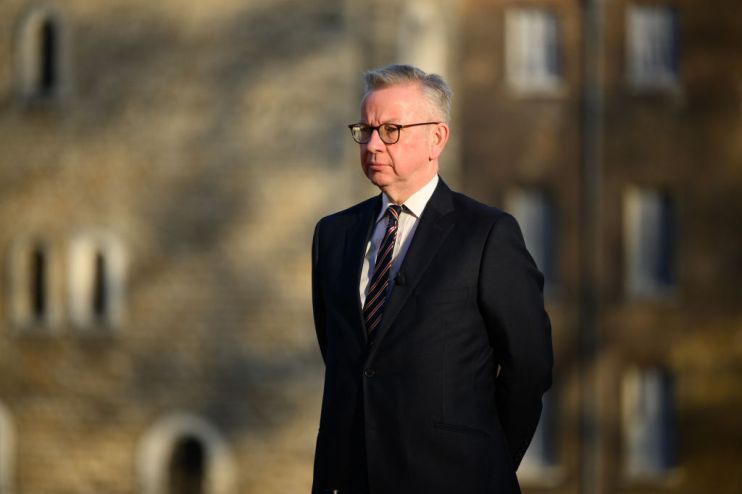In memoriam: Gove started to crack open a housing crisis paralysed by indecision

Amid the utter chaos of the last 72 hours – from the torrent of ministerial resignations to Boris Johnson’s own painful almost-exit – there was someone who was ushered out of Cabinet – Michael Gove.
A long-time frenemy of the prime minister, Gove had been appointed Secretary of State for Housing – soon after renamed the Levelling up Department – last September. Known to be one of the most effective and competent people in policy, he was handed the key to what, we were told, was the government’s number one priority: levelling up the country.
As we now know, this meant everything and nothing. The White Paper supposed to flesh out its aims was packed full of classical references, a reverence for Renaissance Florence and little else. But at the top of his in-tray was a national housing crisis. On the list, appalling social housing conditions, coupled with a shortfall of affordable housing stock and an unfaltering cladding crisis. It wasn’t an easy job.
Yet, in a rare spectacle of political ability, he fared well. On social housing, he made progress by listening to those who were affected by leaks, mould and insects in what should have been safe and warm affordable homes. Although this sounds like the simple nitty-gritty, even just admitting something had to change meant improvement compared to his predecessors.
Gove was committed to getting more funding for social housing, changing current regulations with the aim of improving standards of living, and ensuring housing associations took responsibility for their services.
Social housing activist Kwajo Tweneboa, who has been a prominent voice exposing the conditions of some housing providers, said the sacking of Gove from that role was “another blow to the housing crisis”.
Gove also managed to find some headway, albeit not enough, in the cladding crisis which has paralysed the industry since a fire ripped through Grenfell tower in 2017. He fought a tireless battle with developers to make them share the burden of replacing cladding on their buildings, when before the financial pain was thrust on leaseholders. The deal struck is unlikely to cover all the cladding remediations for the buildings affected – which could be more than 10,000. Fixing them all is expected to cost more than the £2bn agreed. But it is still a momentous win for leaseholders.
In the last few decades, we’ve had a spattering of housing secretaries, with few lasting more than a year.
Gove, at nine months, won plaudits from industry voices not normally enamoured with Westminster.
“Arguably Gove has made more progress than all of them put together”, said Mary Anne Bowring, group managing director at property consultant Ringley Group.
Cladding campaigners have been head-to-head with Gove, asking for more detailed policies or more sweeping reforms. But even they, at the news of his exit from Cabinet, were left in despair. Campaign group End our Cladding Scandal called for Gove to be reappointed, recognising his solution to the cladding crisis was “by no means ideal” but praising his “determination to materially improve what was on the table”. When the people whose entire aim is to hold you to account want you back, it probably means as a politician you’re doing a decent job.
Ultimately, Gove’s departure from government is yet another loss for those who should be at the heart of politics – the people.